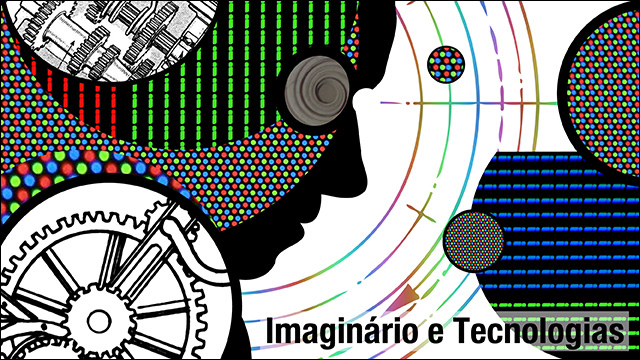Educational radio and cybercultur@ in the community mobilization process
DOI:
https://doi.org/10.15448/1980-3729.2011.3.10390Keywords:
Educational radio, educommunication, community radioAbstract
The study investigates the course of educational radio in Brazil. It aims to address its various aspects through different historical moments. It intends also to discuss its online presence and examine its insertion in cybercultur@. The research was based on bibliographic and documental research. We conclude that the educational use of radio varied over time. It underwent a diffuse cultural-educational content, incorporated governmental programs of distance learning, supported basic education and the broadcast of “high culture” and of information of public interest, inserted itself in school teaching and learning processes and revealed an educational dimension in popular and community radio.Downloads
References
ASSUMPÇÃO, Z. A. de. Radioescola: uma proposta para o ensino de primeiro grau. São Paulo: Anablume,1999.
BEISIEGEL, Celso de R. Estado e educação popular. São Paulo: Pioneira, 1974.
BRASIL. Lei n. 378. Rio de Janeiro, 13 jan. 1937. Senado Federal. Brasília. Disponível em: http://www6.senado.gov.br/legislacao/ListaTextoIntegral.action?id=75953 Acesso em: 21 maio 2011.
BRECHT, Bertold. Teoría de la radio (1927-1932). In: BASSETS, Lluís (Ed.). De las ondas rojas a las radios libres. Textos para la historia de la radio. Barcelona: Gustavo Gili, 1981.
FERRARETTO, Luiz A. Rádio: o veículo, a história e a técnica. 2. ed. Porto Alegre: Sagra-Luzzato, 2001.
FREIRE, Paulo. Extensão ou comunicação? São Paulo: Paz e Terra, 1977.
GOHN, M da G. Educação não formal e cultura política. São Paulo: Cortez, 1999.
GONZÁLEZ, Jorge A . Digitalizados por decreto. Cibercultur@: inclusão forçada na América Latina. Matrizes, USP, a. 2, n. 2, p. 113-138, 2008.
______. Presentación. Introducción general. In: GONZÁLEZ, Jorge A. (Org.). Cibercultur@ e iniciación en la investigación. CNCA/IMC/UNAM-CEICH, 2007, p. 15-27.
______. Cibercultur@ como estrategia de comunicación compleja desde la periferia. Ciudad de México: LabcomplexCEICH/UNAM, s/da. Disponível em: www.labcomplex.net Acesso em: 28 fev. 2010.
______. El desarrollo de cibercultur@ en proyectos de conocimiento: hacia una comunidad emergente de investigación. Ciudad de México: Labcomplex-CEICH/UNAM, s/db. Disponível em: http:www.kasiopea.webs.com/biblioteca.htm Acesso em: 21 jan. 2010.
MAASS MORENO, Margarita. Por uma cultura de comunicación. In: GONZÁLEZ, Jorge A. (Org.). Cibercultur@ e iniciación en la investigación. CNCA/IMC/UNAM-CEICH, 2007, p. 231-332.
LENKERSDORF, C. Los hombres verdaderos: voces y testemonios tojolabales. 5. ed. Ciudad de México/Buenos Aires/Madrid: Siglo Veiteuno, 2008.
LOPES, Cristiano Aguiar. Regulação da radiodifusão educativa. Biblioteca Digital da Câmara dos Deputados. Centro de Documentação e Informação. (Elaborado pela Consultoria Legislativa da Câmara dos Deputados). Brasília: Câmara dos Deputados, 2011. Disponível em: http://bd.camara.gov.br Acesso em: 21 maio 2011.
KUHN, Fernando. O rádio entre o local e o global: fluxo, contrafluxo e identidade cultural na internet. 2005. 257 f. Tese (Doutorado em Comunicação Social) – UMESP, São Bernardo do Campo, 2005.
MEDITSCH, Eduardo. O rádio na era da informação: teoria e técnica do novo radiojornalismo. Florianópolis: Insular/UFSC, 2001.
MOREIRA, Sonia V. O rádio no Brasil. Rio de Janeiro: Rio Fundo Editora, 1991.
ORTRIWANO, Gisela S. A informação no rádio: os grupos de poder e a determinação dos conteúdos. São Paulo: Summus, 1985.
Downloads
How to Cite
Issue
Section
License
Copyright
The submission of originals to Revista Famecos implies the transfer by the authors of the right for publication. Authors retain copyright and grant the journal right of first publication. If the authors wish to include the same data into another publication, they must cite Revista Famecos as the site of original publication.
Creative Commons License
Except where otherwise specified, material published in this journal is licensed under a Creative Commons Attribution 4.0 International license, which allows unrestricted use, distribution and reproduction in any medium, provided the original publication is correctly cited.






